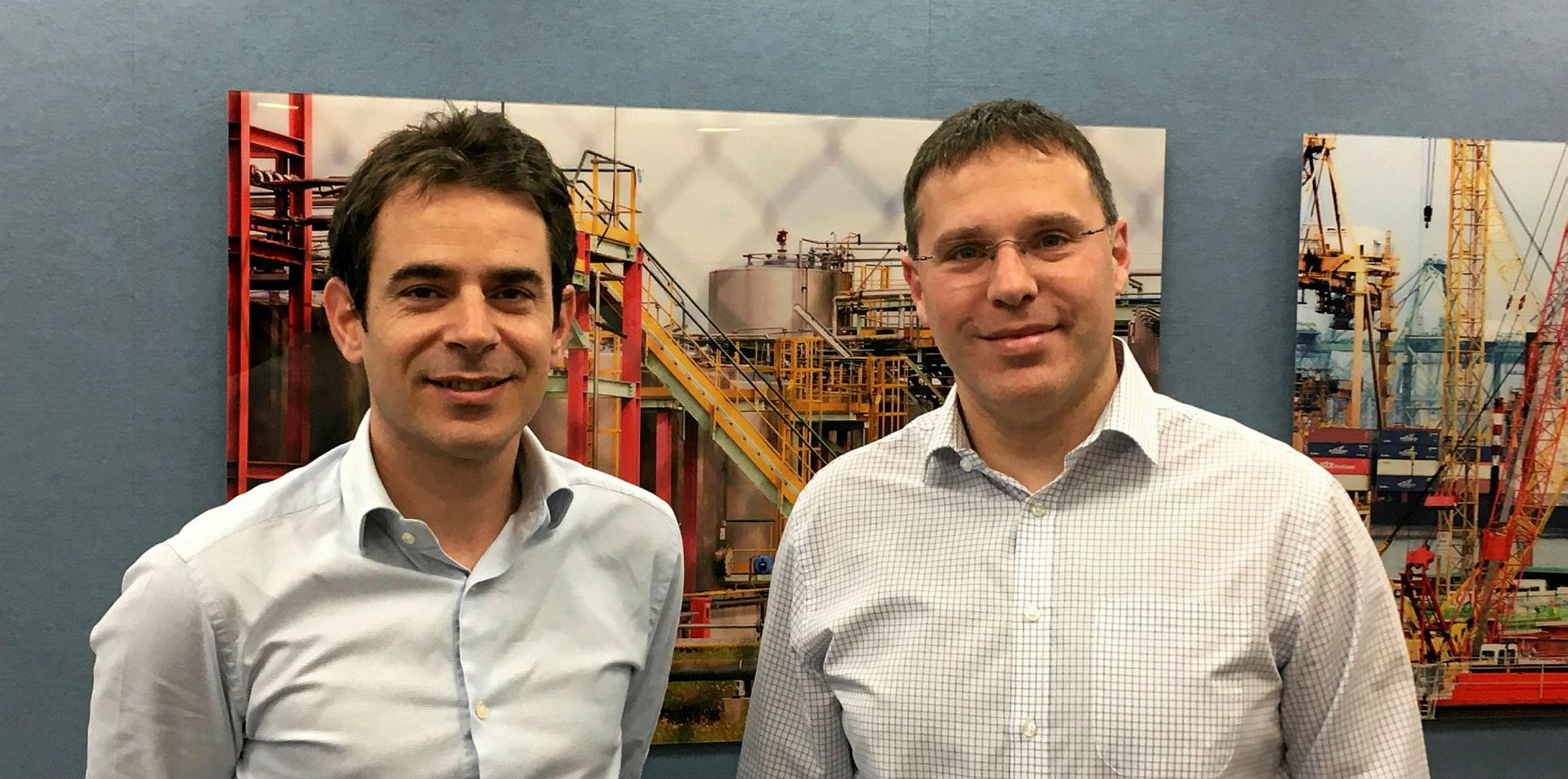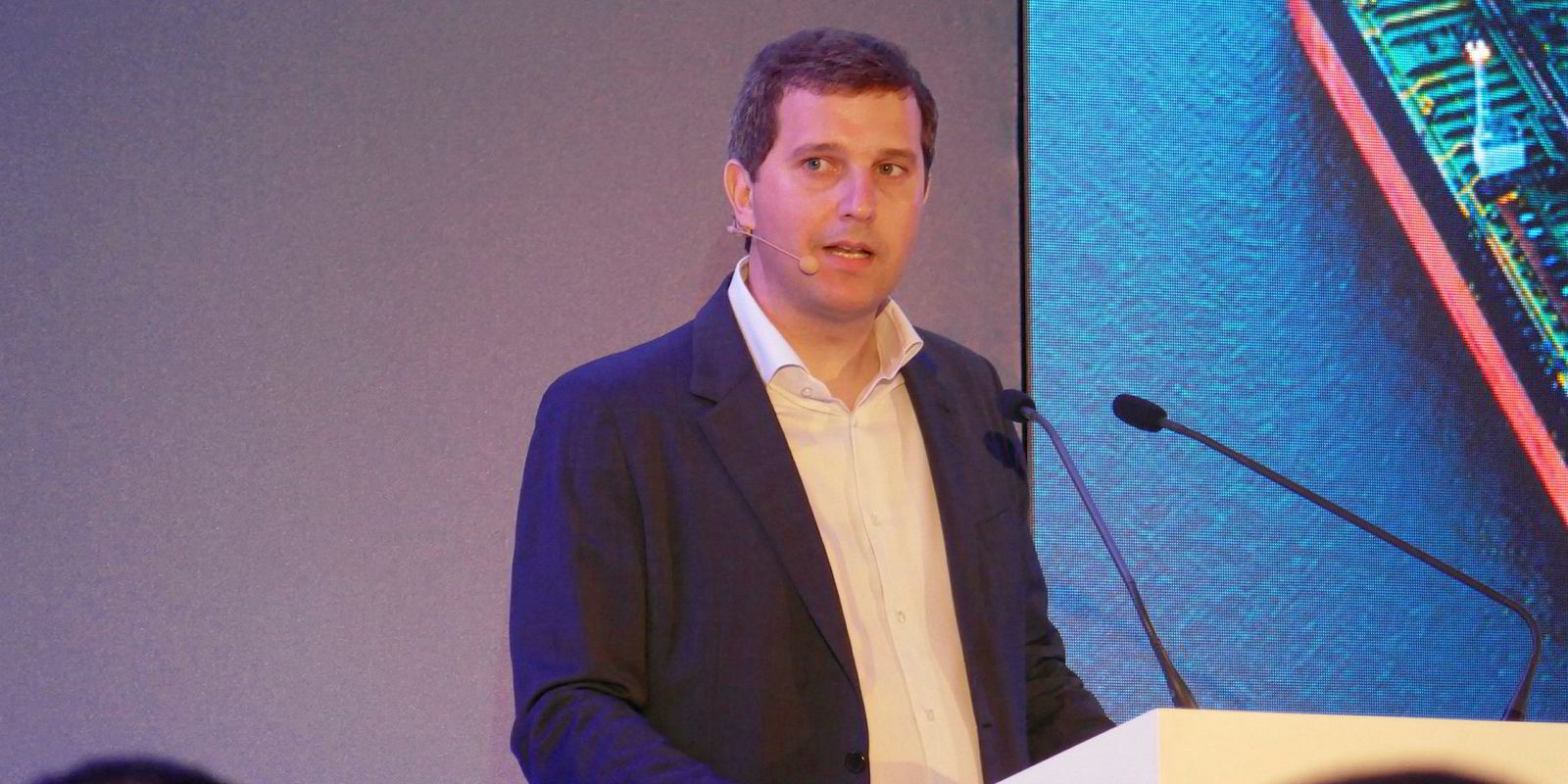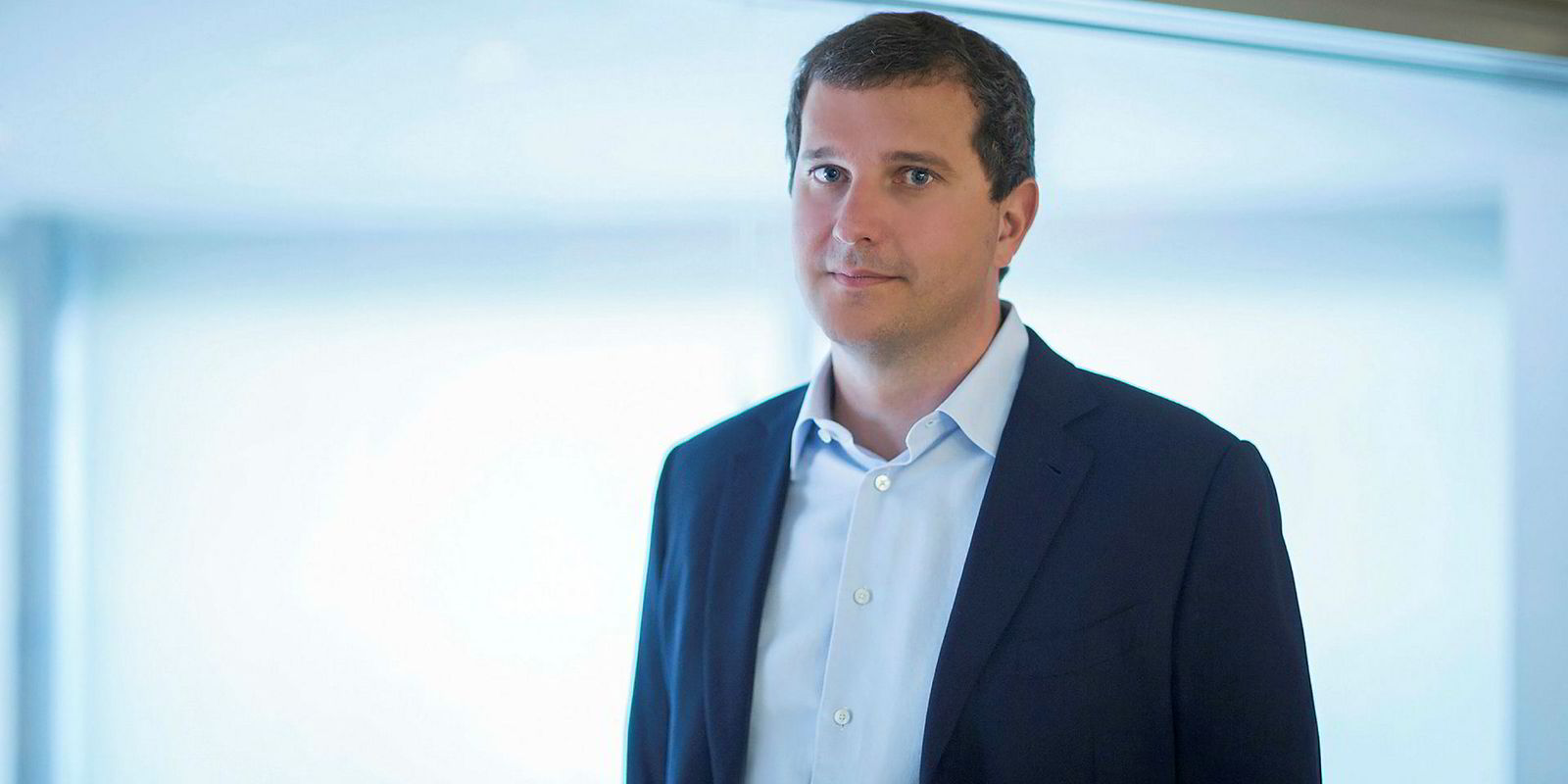The jury is still out on how many members of soon-to-be wrapped-up pools operator Heidmar will ultimately join Signal Maritime — the tech-savvy aframax pool with which Heidmar struck a cooperation agreement earlier this year.
At least three of Heidmar’s 21 aframaxes and product carriers at the core of the agreement will not be joining Signal, as their owners have already tendered redelivery notices to Heidmar.
Talks with other Heidmar partners are continuing. “I expect the dust to settle within March — we’ll then know what the final situation will be,” Signal chief executive Panos Dimitracopoulos said.
TradeWinds reported that International Seaways pulled three aframaxes from Heidmar last month to put them into rival pool Dakota Tankers.
“I believe those exits have nothing to do with Signal itself. It’s more the result of the existing relationships these partners had with other pools prior to the deal,” Dimitracopoulos said.
“Obviously, no Heidmar pool partner is forced to join Signal. It’s natural for some of them to want to ask questions and even to be sceptical in joining us — we’re not a typical, standard pool, we’ve introduced some innovations.”
Friction between Heidmar and at least some of its pool members is complicating the picture. TradeWinds is told some members are waiting for Heidmar to settle hundreds of thousands of dollars in outstanding payments.
Vessel types
Aframaxes: 23
LR2s: 8
MR2s: 1
Panamax bulkers: 1
Pool partners (number of vessels)
NGM Energy: 1
Liquimar Tankers Management Services: 1
Capital Maritime & Trading: 3
Eastern Pacific Shipping: 1
Sole Shipping: 1
Ionic Shipping: 2
Great Eastern Shipping: 4
Qatar Navigation (Milaha): 2
Kondinave: 1
Associated Maritime: 1
Active Shipping: 3
Niovis Shipping: 1
Stealth Maritime: 5
Roswell Tankers: 1
Phoenix Energy Navigation: 1
Reederei NSB: 1
Songa Shipping: 1
Chartworld Shipping: 1
Signal Maritime: 1
Thenamaris: 1
Source: Signal Maritime website as of 12 March, subject to change.
We’re more of an algorithm provider than a data provider — we don’t want to level the playing field between companies
Signal Group COO Dimitris Tsapoulis
However, one former Heidmar pool member, which has joined Signal on a wait-and-see basis, told TradeWinds the row over outstanding payments and its decision on whether to ultimately stay with Signal were two entirely different matters.
Heidmar did not respond to a request for comment.
Core focus
Signal will focus on its core, spot-trading aframax business. It will take about six months to decide if and when it will also start managing other tanker types.
There is no ceiling on the number of ships the venture ultimately wants to manage.
“We aspire to keep growing without compromising our performance,” Dimitracopoulos said. If all of Heidmar’s 21 aframaxes and LR2s joined Signal, it would boost the pool to 34 vessels.
Signal intended to grow, and Heidmar, which was already using its software, was an opportunity to do so, Dimitracopoulos added. “We already had our own growth anyway before the Heidmar deal, with different pool partners”. The Heidmar deal “doesn’t change anything at all” about the way its platform works.
Missing out on some Heidmar ships would be a new experience for Signal. Not a single ship has left it since it was launched in July 2018, with the exception of a vessel that switched from spot trading into a long-time charter.
Signal claims to be producing superior earnings with its Signal Ocean platform, a software system developed in-house that helps chartering professionals cope with mundane and computationally complex tasks — crunching data, seeing moves in the market and interpreting them commercially.
Using artificial intelligence, the system combines and cross-checks an individual client's data to produce, among others things, voyage and fixture perspectives and tonnage lists, as well as profitability calculations and comparisons.
Several of Signal’s older members contacted by TradeWinds said they were extremely satisfied with their ships’ performance.
“The platform is a real eye-opener, truly unique in shipping, and we’re very proud to be part of this,” said Spyros Vlassopoulos, managing director of Ionic Shipping.
Asked whether Arne Blystad would consider pulling its only aframax from the pool, chief executive Fredrik Platou said: "Not at all. We will definitely keep her."
An arm's length affiliate company, Signal Ocean, is separately renting out the software as a service package to companies. About 70 outfits have signed up, made up fairly evenly of major shipowners, brokers and charterers, including oil majors and big commodity traders.
“We’re more of an algorithm provider than a data provider — we don’t want to level the playing field between companies,” said Dimitris Tsapoulis, chief operating officer of Signal Group.
The number of ships featured on the platform has grown from about 7,000, when the system was launched, to more than 30,000. That includes all types of commercial ships above 20,000 dwt: tankers, bulkers, containerships, as well as LNG and LPG carriers.
However, only part of the system that covers large crude tankers is commercially available. “On anything but large crude tankers, we are in talks with clients to improve the product,” Tsapoulis said.
A partnership Signal Ocean announced last October with UK shipbroker Simpson Spence Young has been instrumental in improving the dry bulk offering.
“We believe that by the end of the year, we will have a commercially available service for dry bulkers and maybe even for all remaining tankers,” Tsapoulis said.






